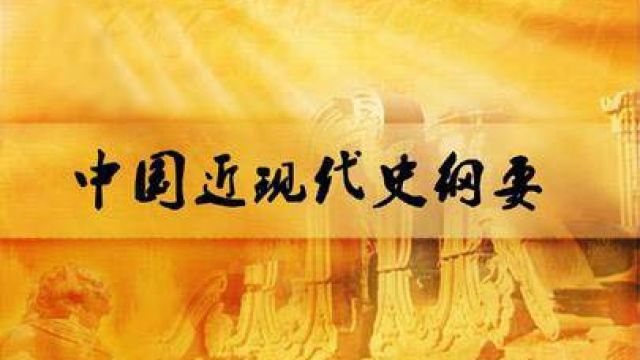
当前课程知识点:英语国家概况——纵览·博闻 > 第二讲 英国——历史 > 2.1 民族 > 民族
Hi, everyone,
嗨 大家好
in the episode of this chapter,
在本集中
we are going to talk about history.
我们将要学习历史
History is about people and written by people,
历史聚焦人类 也由人类记录
so, in the first episode,
所以在第一集
let’s begin with people.
我们将从人开始讲起
Part 1 The Celts
第一部分 凯尔特人
00:00:38,140 --> 00:00:40,245
Before the great Ice Age,
在冰河时期之前
Great Britain was joined to the continent of Europe.
英国国土与欧洲大陆相连
It was then that the first man came to Britain.
大不列颠岛迎来了第一个人类
Between 3000 and 2000 BC,
公元前3000年至2000年间
the first known settlers on the Britain Isles
首先在大不列颠群岛定居的
were the Iberians.
是伊比利亚人
They came from the Iberian Peninsula in Spain.
伊比利亚人来自西班牙的伊比利亚半岛
They were dark-haired people
他们拥有深色的毛发
and nomadic Stone Age hunters.
是游牧石器时代的猎人
Meanwhile, they were the only relics
同时他们是那个年代唯一
who gave evidence of their existence;
有迹可循的群体
the biggest one is the Stonehenge on the Salisbury Plain
其中一个最显然的证据就是他们3500年前在
about 3,500 years ago.
索尔兹伯里平原建造的的巨石阵
The Celts began to arrive in Britain
凯尔特人从公元前700年开始
at about 700 BC
定居英国
and kept coming until the arrival of the Romans.
并且持续涌入英国直到罗马时代的来临
The Celts were practiced farmers.
凯尔特人都是有经验的农民
They drained much of the mainland and built houses
他们大量利用本土的资源
of wood and wickerwork
用木头和枝条建造房子
with a weatherproof coating of mud.
并且在房子外面涂有防风雨的泥浆
The Celtic tribes were ancestors of the Highland Scots,
凯尔特人部落是高地苏格兰人
the Irish and the Welsh,
爱尔兰人和威尔士人的祖先
and their language was the basis of both Welsh
并且威尔士语和苏格兰盖尔语
and Scottish Gaelic.
是由他们的语言演变而来的
Part 2 The Romans
第二部分 罗马人
Recorded history of Britain started in the year 55 BC,
英国的历史记录始于公元前55年
when Julius Caesar
当时凯撒大帝
and his Roman troops invaded the island.
和他的罗马军队入侵大不列颠岛
Who is Julius Caesar?
凯撒大帝是谁?
He was a legendary man,
他可是个传奇
and he played a critical role in the events
在罗马帝国的崛起当中
that led to the rise of the Roman Empire.
他有着重要的贡献
Following the conquest,
在被征服后
Britain became a Roman Province
英国变成了罗马帝国的一个行省
and named as Britannia.
并且被命名为“Britannia”(大不列颠的拉丁文名称)
With the time moved by,
随着时间的推移
a distinctive Roman-British culture emerged
一个独特的罗马-英国文化出现了
as the Romans introduced improved agriculture,
这得益于从罗马引进的先进农业技术
urban planning,
城市规划
industrial production,
工业生产
and architecture.
以及建筑
The Roman Occupation of Britain
罗马占领英国长达近400年
lasted for nearly 400 years until 410 AD
直到公元410年
when the Roman completely withdrew from Britain.
罗马人才完全从英国撤离
Why did they leave?
他们为什么要离开?
Well, firstly,
首先
the resistance of the British people was strong.
英国人民的抵抗十分强烈
Secondly,
其次
Roman troops were often withdrawn
罗马帝国的军队经常撤兵
to fight in other parts of the empire.
去别的地方发起战争
In 410 AD,
在公元410年
all Roman troops were forced to leave Britain
所有罗马军队被迫离开英国
to defend their own nation from Germanic attack,
保卫自己的国家免受日耳曼侵袭
and thus ending the Roman occupation of this island.
因此罗马对这个岛的占领就此结束
The Romans built a network of towns.
罗马人建立了一个城镇网络
The English suffix
“caster”’和“chester”这两个后缀
caster or chester in English names of places
经常出现在英语地名中
such as Lancaster,
就像是兰开斯特
Winchester
温彻斯特
derives from the Latin word for camp.
这来源于拉丁语单词“阵营”
When Romans were gone,
当罗马人离开的时候
they left Britain straight roads
他们给英国留下了笔直的马路
and well-planned town such as Bath.
留下了像巴斯一样规划到位的城镇
They built beautiful baths,
他们建造了漂亮的浴场
temples
寺庙
and villas.
和别墅
Meanwhile, they brought the new religion,
同时 他们给英国带来了新的宗教
Christianity, to Britain.
基督教
Since the withdrawal of the Romans,
当罗马人撤军以后
did the Celts start to rule their own piece of land?
凯尔特人就可以统治他们自己的土地了吗?
The answer is definitely no.
答案是否定的
You see,
要知道
the glory of the British Empire later
后来辉煌的大英帝国
was built on the conquest of other people
是建立在征服他人以及
and the taking over of lands.
占领其他土地的基础上
However,
然而
Britain also surrendered to others many times.
英国也多次向别的国家投降
This time,
但这次
the others came but stayed forever.
外人来了 但却再也不走了
Part 3
第三部分
The Angles, Saxons and the Jutes
盎格鲁、撒克逊人和朱特人
The Angles, the Saxons and the Jutes,
盎格鲁、撒克逊人和朱特人
are northern tribes who began to come to Britain
是北方的部落 第五世纪中叶开始
from the continent in the middle of 5th century.
从欧洲大陆来到了英国
The Jutes,
朱特人
who fished and farmed in Jutland,
曾经在日德兰半岛即现在的丹麦南部
now southern Denmark,
生活
came to Britain first.
他们首先来到英国
Then the Saxons,
随后到达的是撒克逊人
users of the short sword from northern Germany,
他们是用短剑的北日耳曼部落
came and established their kingdom in
他们在埃塞克斯 萨塞克斯和威塞克斯
Essex, Sussex and Wessex.
建立自己的王国
In the second half of the 6th century,
在六世纪后半叶
the Angles, who came from northern Germany
日耳曼北部的盎格鲁人
and were to give their name to the English people,
用他们的名字命名英国人
settled in East Anglia, Mercia and Northumbria.
在东盎格利亚 麦西亚以及诺森伯利来定居
These people spoke a mutually intelligible language
他们使用一种通用的语言
now called old English.
现在叫做古英语
They drove the original Celtic -speaking English
他们把说凯尔特语的原著民
out of what is now England into Scotland,
从英格兰赶到了苏格兰
Wales and Ireland.
威尔士和爱尔兰
From then on,
从那时候起
the country became known as England,
这个国家被称为英国
meaning “the land of the Angles”.
意思是“盎格鲁人的土地”
The Anglo-Saxon tribes were continually at war
盎格鲁-撒克逊部落相互之间
with one anther,
战火纷飞
each of them trying to get the upper hand.
双方都想争夺最高统治权
So the kingdoms were constantly broken up
所以王国不断分裂
and pieced together.
又不断整合
The Anglo-Saxons
盎格鲁-撒克逊人
brought their own Teutonic religion to Britain.
把自己的日耳曼宗教带到了英国
They named the days of the week with their gods as
他们用他们的神命名一周的每一天
Tuesday, Wednesday, Thursday and Friday.
就像是星期二、星期三、星期四和星期五
Meanwhile, by dividing the country into shires
同时 通过把国家划分为郡
and creating the Witanto advise the king,
任命国师来给国王提出建议
they laid the foundations of the English state.
奠定了英国国家的基础
Part 4 The Normans
第4部分 诺曼人
King Edward ruled England since 1042.
自1042年爱德华国王统治英国
Edward spent the first part of his life in Normandy,
爱德华的前半生在诺曼底度过
the northwest of France.
即法国西北部
He grew up with deep religious views
他从小就有深厚的宗教观
and gained the nickname “Confessor”.
并获得了“忏悔者”的绰号
However, away from his family and in a strange land,
然而 据说在远离家人的陌生土地上
it is said that Edward’s childhood was not a happy one.
生活的爱德华童年并不是很快乐
He married in 1045.
他于1045年结婚
His wife, Edith,
他的妻子伊迪丝
was the daughter of Godwin of Wessex,
是威塞克斯的戈德温的女儿
the most important nobleman in England.
而戈德温是英国最重要的贵族
They had no children
他们没有孩子
as Edward had taken a vow of celibacy,
因为爱德华发誓要终身禁欲
which means he would not have sexual relationship
也就是说他不会和任何女人
with any women in his life
发生关系
because of his religious vows.
以忠于他的宗教誓言
King Edward’s death
爱德华国王的逝世
was to transform Medieval England
改变了中世纪的英格兰
and led to the reign of the Norman William the Conqueror,
并迎来了征服者诺曼·威廉的统治
with all that his rule meant to Medieval England – castles,
他的统治对中世纪的英格兰来说无非就是建造城堡
the Doomsday Book and feudalism.
末日之书和封建主义
In 1066,
在1066年
Edward died without an heir,
爱德华死后没有继承人
and then a dispute over the succession
然后一场关于英国继承者的争端
to the English throne occurred.
爆发了
It was said that
据说
he had verbally promised the English throne
他口头上答应了把英国王位
to his cousin, William,
给他的堂兄
the Duke of Normandy,
诺曼底公爵威廉
but the Witan, chose his brother-in-law, Harold, as king.
但是国师选择了他的姐夫哈罗德作为国王
Thus, on 6 January 1066,
于是 1066年1月6日
King Edward was buried in Westminster Abbey
爱德华王被葬在威斯敏斯特教堂
and Harold, the son of the Godwin
同时哈罗德 戈德温的儿子
was crowned King Harold II of England.
加冕为英国国王哈罗德二世
Within days,
几天之内
William assembled a large invasion fleet
威廉组建了一支大型入侵舰队
and an army then landed in southern England.
和一支军队登陆英国南部
Harold marched south to confront him,
哈罗德向南进军抵抗的同时
leaving a significant portion of his army in the north.
在北方留下了相当大的一部分军队力量
Harold's army confronted William's invaders on 14 October
10月14日 哈罗德的军队在黑斯廷斯战役中
at the Battle of Hastings;
与威廉的入侵者对峙
William's force defeated Harold,
最后威廉打败了哈罗德
who was killed in the engagement.
并在战场上杀死了他
The Norman Conquest of 1066
1066年的诺尔曼征服
is perhaps the best-known event in English history.
也许是英国历史上
William I, usually known as William the Conqueror,
威廉一世 也通常被称为征服者威廉
and sometimes William the Bastard,
或者私生子威廉
was the first Norman King of England,
是英国的第一个诺曼人国王
reigning from 1066 until his death in 1087.
从1066年开始统治直到1087年去世
Although William's main rivals were gone,
虽然头号敌人已经去世
he still faced rebellions over the following years
但在接下来的几年里威廉仍然面临着叛乱
and was not secure on his throne until after 1072.
直到1072年之后 他的王位才稳固下来
The lands of the resisting English elite were confiscated;
那些反抗者的土地被没收
some of the elite fled into exile.
其中有一些人选择逃亡
To control his new kingdom,
为了管理他的新王国
William gave lands to his followers
威廉赐予他的追随者土地
and built castles commanding military strong points
为了指挥整个国家的军事行动
throughout the land.
他建造了城堡
Other effects of the conquest included the court,
征服给英国带来了
the government and the introduction of Norman French
法庭 政府和诺曼底法语
as the language of the elites.
法语成为上流社会的语言
He replaced the weak Anglo-Saxon rule
威廉用强有力的诺尔曼政府
with a strong Norman government.
取代了盎格鲁-撒克逊人的统治
So the feudal system was completed
这标志着封建主义在英国的
and established in England.
建立
Relations with the continent were opened,
英国开始对欧洲大陆开放
and the civilization and commerce were extended.
文明和贸易得到了发展
Norman-French culture, language, manners
诺曼-法国文化 语言 礼仪
and architecture were introduced.
和建筑被引进
The Church was brought into closer connection with Rome,
教会与罗马的关系更为密切
and the church courts were separated from the civil courts.
而且教会法院从民事法庭中分离出来
Did you know?
你知道吗?
The English language begins with the phrase
英语这门语言
“Up Yours Caesar!”as the Romans leave Britain
是以罗马人离开英国时说的“去你的凯撒”这句话开始的
The Vikings came along with their action-man words like
自从诺曼底征服之后维京人给英语带来了大量的动词
“drag”, “thrust” and “die”
例如“拖”“推” 和“死”
beef, mutton and pork joined the English vocabulary
以及牛肉 羊肉和猪肉这些词
since the Norman Conquest.
加入到了英语词汇中
-导学
--导学篇
-Unit 1 Glossary
--html
-1.1 英国地理与城市
-- 英国地理和城市
-第一讲 地理、民族和语言--1.1 英国地理与城市
-1.2 美国地理与城市
--美国地理与城市
-第一讲 地理、民族和语言--1.2 美国地理与城市
-1.3 英美种族分布
--英美种族
-第一讲 地理、民族和语言--1.3 英美种族分布
-1.4 语言
--语言
-第一讲 地理、民族和语言--1.4 语言
-1.5 英式英语还是美式英语?
-第一讲 地理、民族和语言--1.5 英式英语还是美式英语?
-第一讲 地理、民族和语言--单元测试
-第一讲 How much do you know about Britain?
-Unit 2 Glossary
--html
-2.1 民族
--民族
-第二讲 历史--2.1 民族
-2.2 王朝
--王朝(上)
--王朝(下)
-第二讲 历史--2.2 王朝
-2.3 帝国
--帝国
-第二讲 历史--2.3 帝国
-2.4 新大陆与殖民地
--新大陆与殖民地
-第二讲 历史--2.4 新大陆与殖民地
-2.5 独立
--独立
-第二讲 历史--2.5 独立
-2.6 内战
--内战
-第二讲 历史--2.6 内战
-第二讲 历史--单元测试
-Unit 3 Glossary
--html
-3.1 君主立宪制、政府和政党
-第三讲 政治--3.1 君主立宪制、政府和政党
-3.2 美式民主(1)
--美式民主(1)
-第三讲 政治--3.2 美式民主(1)
-3.3 美式民主 (2)
--美式民主(2)
-第三讲 政治--3.3 美式民主 (2)
-3.4 美国总统选举与演讲
-第三讲 政治--3.4 美国总统选举与演讲
-第三讲 政治--单元测试
-Unit 4 Glossary
--html
-4.1 英国经济
--英国经济
-第四讲 经济与科技--4.1 英国经济
-4.2 美国经济
--美国经济
-第四讲 经济与科技--4.2 美国经济
-4.3 美国科技
--美国科技
-第四讲 经济与科技--4.3 美国科技
-第四讲 经济与科技--单元测试
-第四讲 The greatest invention in the history
-Unit 5 Glossary
--html
-5.1 教育: 历史、政策和体系
-第五讲 教育--5.1 教育: 历史、政策和体系
-5.2 英美名校掠影
-- 英美名校掠影
-第五讲 教育--5.2 英美名校掠影
-5.3 在英美上大学
--在英美上大学
-第五讲 教育--5.3 在英美上大学
-第五讲 教育--单元测试
-第五讲 Which country would you like to go for further study?
-Unit 6 Glossary
--html
-6.1 好莱坞文化
--好莱坞文化
-第六讲 流行文化--6.1 好莱坞文化
-6.2 英剧 vs.美剧
--英剧 vs.美剧
-第六讲 流行文化--6.2 英剧 vs.美剧
-6.3 纸媒体和社交媒体
--纸媒体和社交媒体
-第六讲 流行文化--6.3 纸媒体和社交媒体
-6.4 流行音乐
--流行音乐
-第六讲 流行文化--6.4 流行音乐
-第六讲 流行文化--单元测试
-第六讲 British dramas vs. American dramas
-Unit 7 Glossary
--html
-7.1 传统与习俗
--传统与习俗
-第七讲 社会生活(1)--7.1 传统与习俗
-7.2 宗教
--宗教
-第七讲 社会生活(1)--7.2 宗教
-7.3 英国节日
--英国节日
-第七讲 社会生活(1)--7.3 英国节日
-7.4 美国节日
--美国节日
-第七讲 社会生活(1)--7.4 美国节日
-第七讲 社会生活(1)--单元测试
-第七讲 Other traditions and customs
-Unit 8 Glossary
--html
-8.1 运动
--运动
-第八讲 社会生活(2)--8.1 运动
-8.2 酒吧文化
--酒吧文化
-第八讲 社会生活(2)--8.2 酒吧文化
-8.3 休闲娱乐
--休闲娱乐
-第八讲 社会生活(2)--8.3 休闲娱乐
-8.4 旅游
--旅游
-第八讲 社会生活(2)--8.4 旅游
-第八讲 社会生活(2)--单元测试
-9.1 加拿大——地理、城市和历史
--第九讲 加拿大概况——9.1 地理和历史
-9.2 加拿大——政治与经济
--第九讲 加拿大概况——9.2 政治与经济
-9.3 加拿大——社会与文化
--第九讲 加拿大概况——9.3 社会与文化
-第九讲 加拿大概况——单元测试
-10.1 爱尔兰——地理和历史
--爱尔兰地理和历史
--第十讲 爱尔兰概况 10.1 地理和历史
-10.2 爱尔兰——政治经济与文化
--第十讲 爱尔兰概况——10.2 政治、经济和文化
-第十讲 爱尔兰概况——单元测试
-11.1 澳大利亚——地理与历史
--11.1——澳大利亚地理和历史
-11.2 澳大利亚——政治、经济与文化
--11.2 澳大利亚:政治、经济和文化
-第十一、十二讲——单元测试
-第十二讲——新西兰概况






